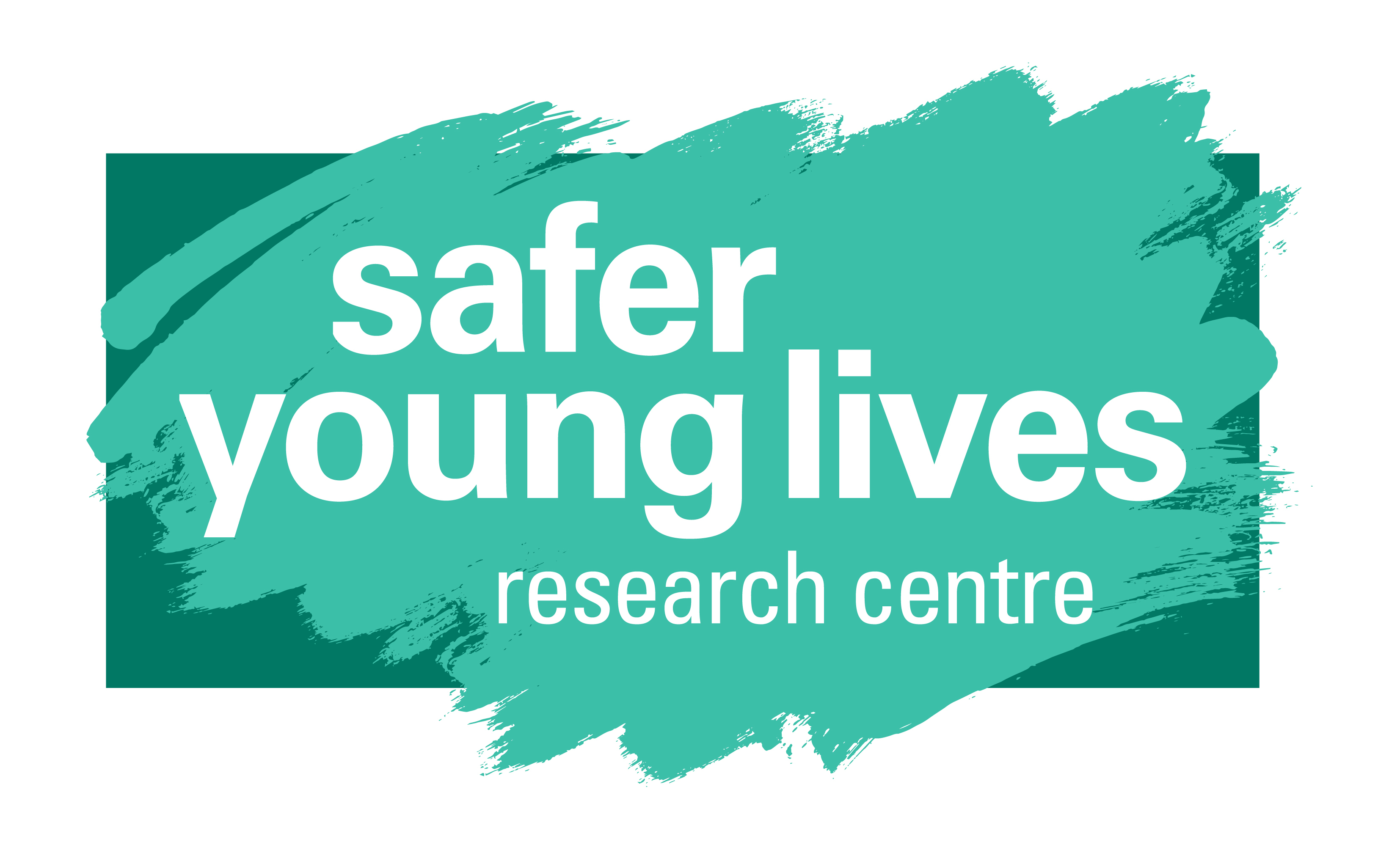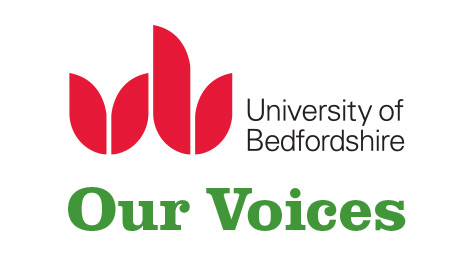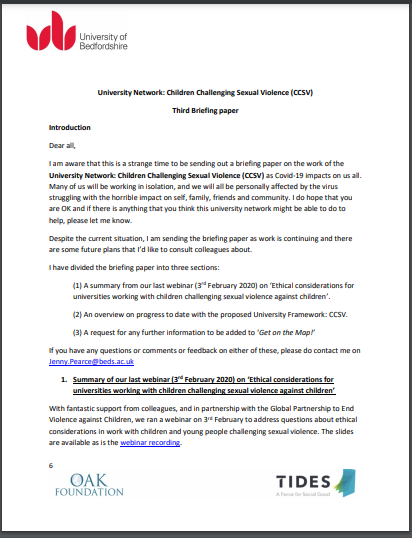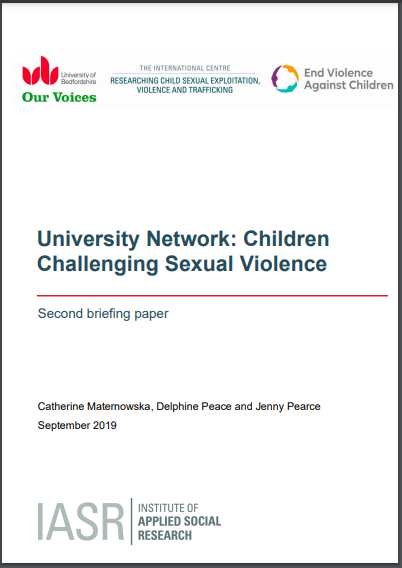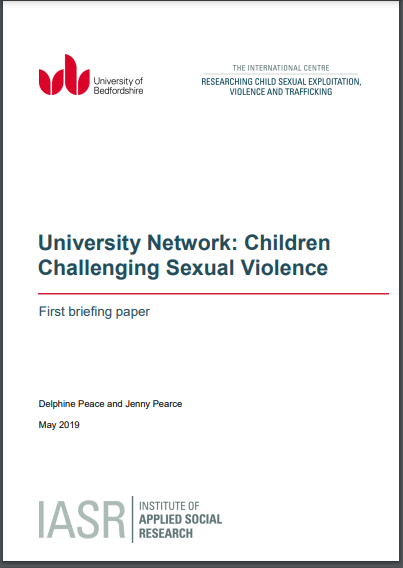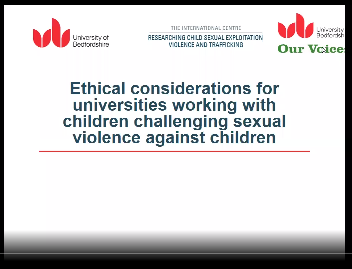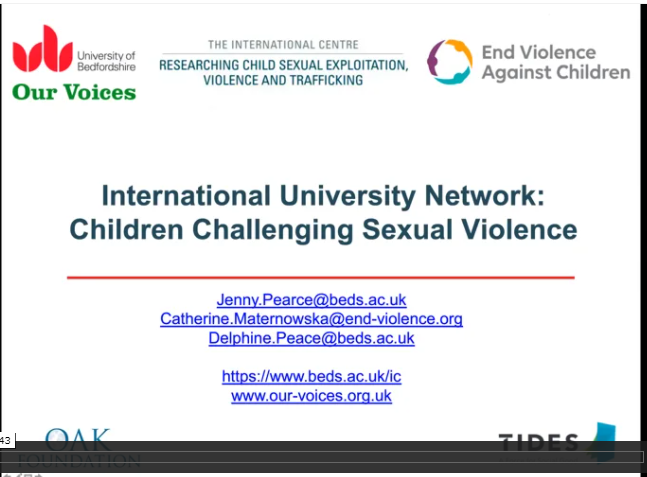Thinking of writing a blog for the OVUN? Fill in this form to share your ideas with us!
About the OVUN
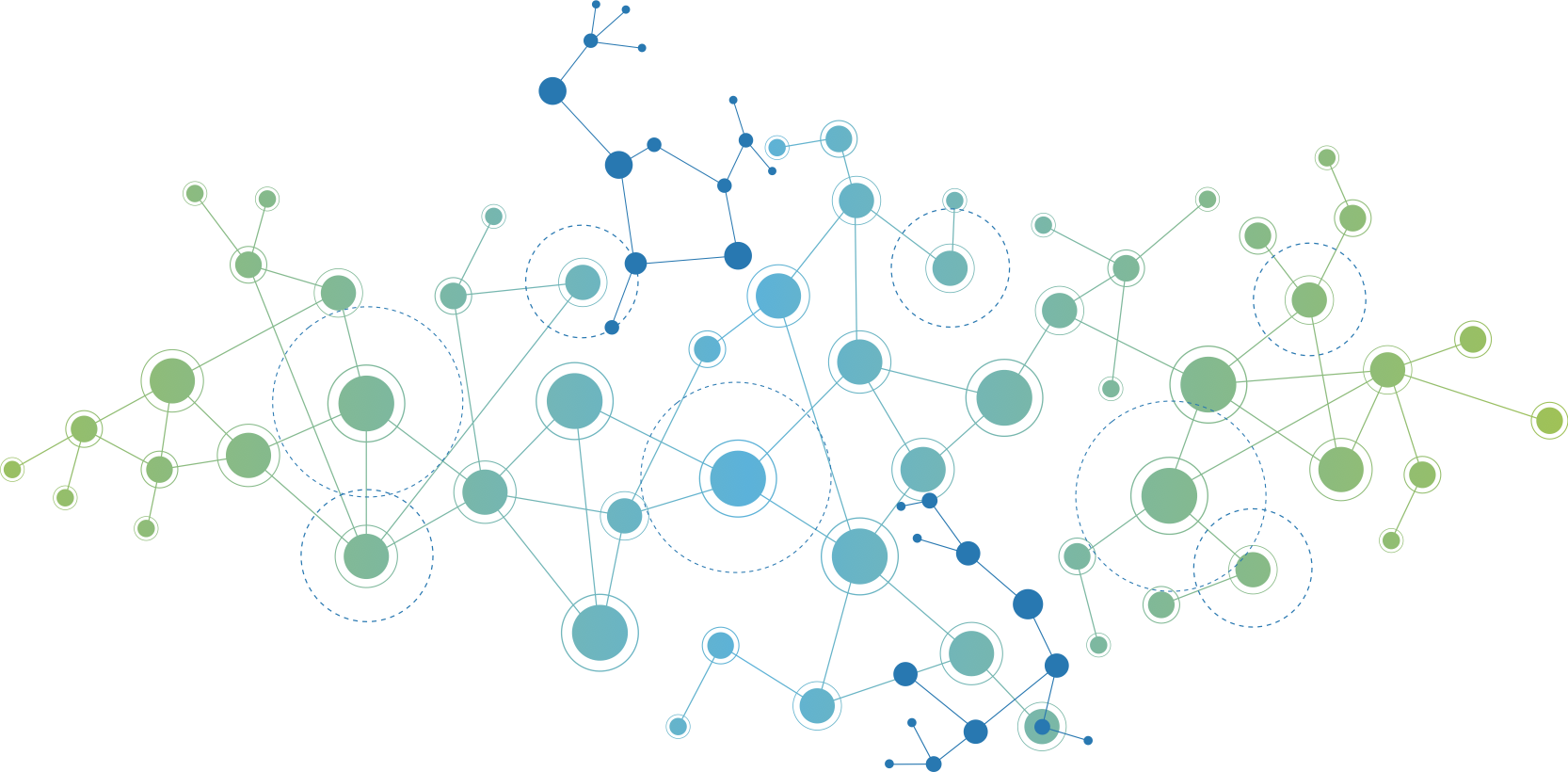
About the OVUN
The OVUN is a global network of multi-disciplinary researchers from universities and (I)NGOs. We are committed to ethical, child-centred research to improve identification, prevention and response efforts for children and young people affected by sexual violence. The OVUN shares learning and builds global knowledge to improve evidence with and about children and young people affected by sexual violence. It aims to influence and improve related practice and policy across a range of disciplines.
The OVUN started with a pilot project in 2019, followed in 2020 with joint funding from Oak Foundation, End Violence Against Children, and The University of Bedfordshire. It is one of two strands of work taking place under the ‘Our Voices III’ project. Our collaborative approach means that Our Voices III activities will be shaped and determined through engagement with network members and other stakeholders.
OVUN members
There are currently 140 professionals signed up to the OVUN from over 40 Universities, ten (I)NGOs and specialist research centres all over the world. In addition to the UK, countries represented in the OVUN include America, Australia, Cyprus, Eswatini, Ethiopia, Germany, Greece, India, Ireland, Italy, Nigeria, Portugal, Serbia, South Africa, Spain, Switzerland, Thailand, The Netherlands, Uganda, Vietnam and Zimbabwe. We are continuing to build relationships and work together across country borders.
To illustrate the geographical reach and profile of the network and facilitate links between researchers, we developed an interactive map which can be found on our website here. Details continue to be added to the map once we have consent from individual OVUN members. If you are not yet a member of the OVUN, you can sign up and get yourself on the map by sharing a few details with us here .
The OVUN leadership team
We are working closely with 12 members of the OVUN who help us to develop a range of activities and outputs to share with – and seek input from – the wider network. The leadership team play a key role in creating supportive, reflective communities for knowledge exchange across subject areas and country contexts.
The current leadership team have backgrounds spanning a range of disciplines including social work and social policy, child and family research, human kinetics and sport, public and community health, education, and law. The research interests and expertise they bring to the OVUN include child protection and safeguarding systems, child and youth participation, children’s rights, recovery after child sexual abuse, and national and international points of legislative convergence and disconnect in relation to child sexual violence.
The OVUN leadership team work to an agreed transparent terms of reference. The composition of the leadership team will be reviewed on an annual basis throughout the three year project, allowing time to build sustainable working relationships alongside offering scope for appointment of new leadership team members.
Meet the current leadership team:

The work of the OVUN
The work of the OVUN foregrounds learning and global knowledge exchange in relation to the participation of children and young people affected by sexual violence. In 2020-21, we delivered – with OVUN members – various webinars and blogs and shared resources, updates and opportunities through our OVUN newsletters. As we are a global network, our work specifically considers issues related to cultural competence, ethics, and the significance of place and context.
In 2022, we will continue to build learning and global knowledge to improve evidence with and about children and young people affected by sexual violence. A number of work streams are already planned and we look forward to getting to know our wider OVUN members better this year, hearing more about your expertise, and finding out how you would like to be involved. We are also looking at ways of increasing the role of the University of Bedfordshire’s Young Researchers Advisory Panel (YRAP), based within the Safer Young Lives Research Centre, in this work.
Additionally, we have developed a postgraduate student forum to support the networking and global knowledge exchange of postgraduate students undertaking research on a topic related to child sexual abuse. We ran our first session in November 2021 with 13 researchers in total, with more sessions planned in 2022. Learning from which will also be disseminated to the wider network.
Our guiding principles
We have developed seven core principles that guide the work of the OVUN and its leadership. These can be found here
How you can get involved
- Sign up to our network! If you would like to join OVUN (and receive updates), simply fill in this short form
- If you would like to have a chat about our work and how you can get involved – including to register interest in the postgraduate student forum - please email Claire Soares in the first instance at: claire.soares@beds.ac.uk
- If you have something you’d like to write about in a blog for the OVUN, you can find information about doing so on our resources page here. We also welcome an ideas you might have for sharing learning in other ways, such as webinars and podcas
Project resources:
Writing a blog for the OVUN
Resources from the pilot phase of the project
This third briefing paper summarises key points arising from the University Network's most recent webinar which explored ‘Ethical considerations for universities working with children challenging sexual violence against children’. This briefing also shares progress on the proposed University Framework and information on ' Get on the Map!' an effort to map active Network members.
This second briefing is based on our first international university network webinar, held in July 2019 with The End Violence Against Children Global Partnership. It provides a recap of presentations from speakers, key discussion points from the Q&A session with participants and signposts to resources.
This briefing paper summarises initial findings from a survey designed to map universities and organisations working on challenging sexual violence against children (SVAC). The survey informs the development of a new university network which will capture and promote participatory activities undertaken by universities around the world to challenge SVAC by supporting children to be co-determiners of research agendas, activities, and teaching and curriculum materials.
A key topic of interest that emerged from scoping undertaken as part of the development of the University Network Children Challenging Sexual Violence (CCSV) is the need for standardised ethical guidance for doing participatory research with children and young people on sexual violence against children.
In this webinar, members of the network, including Jenny Pearce, Elisabetta Biffi, Camille Warrington and Catherine Maternowska, share thoughts and examples from their practice to explore how existing guidance, which is predominantly informed by Western-centric protocols, may need developing for participatory research embracing issues facing low and middle income countries.
In this webinar, held in collaboration with the Global Partnership to End Violence Against Children, we introduce our new International University Network to challenge sexual violence against children and share ideas with participants for future developments. Read more about the International University Network here.
